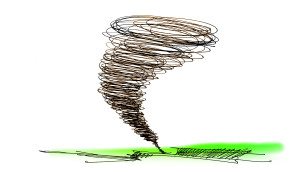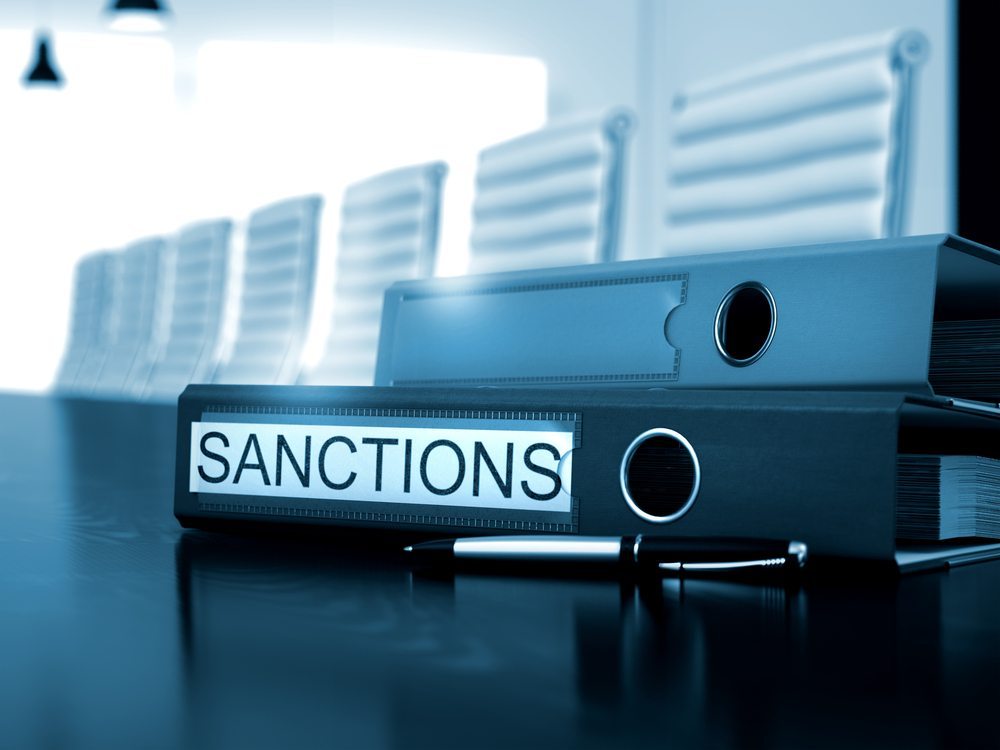On July 1, 2016, the Patent Trial and Appeal Board in RPX Corp. v. Applications in Internet Time LLC, IPR2015-01750, 01751 & 01752, ordered patent owner Applications in Internet Time (AIT) to pay petitioner RPX Corp. $13,500 in attorney’s fees as a sanction for violating the Board’s protective order. The Board found sanctions were warranted because AIT disclosed the confidential information of patent aggregator RPX to an IP attorney and the CFO of a non-practicing entity (NPE) patent licensing company. RPX is in the business of representing companies who have been sued by NPEs.
By way of background, in a May 6, 2016, Order ruling on RPX’s motion for sanctions, the Board explained that it “may impose a sanction against a party for misconduct.” 37 C.F.R. § 42.12(a); see 35 U.S.C. § 316(a)(6). The Rules of Trial Practice provide for various sanctions, as set forth in 37 C.F.R. § 42.12(b).
In general, a motion for sanctions should address three factors: (i) whether a party has performed conduct that warrants sanctions; (ii) whether the moving party has suffered harm from that conduct; and (iii) whether the sanctions requested are proportionate to the harm suffered by the moving party. See Square, Inc. v. Think Comput. Corp., Case CBM2014-00159, slip op. at 2 (PTAB Nov. 27, 2015) (Paper 48) (citations omitted). The Board found that each factor warranted an award of sanctions against AIT.
Violation of Protective Order
Under the first factor, the Board found that AIT repeatedly breached the Standing Default Protective Order when it shared RPX’s designated confidential information with Messrs. Surgeon (AIT’s President), Boebel (AIT’s litigation counsel in a co-pending district court litigation), and Knuettel (the CFO of an NPE and “advisor to AIT regarding the IPRs”). None of these individuals was authorized to review RPX’s confidential information. In its Order granting RPX’s motion for sanctions, the Board referenced a prior panel decision noting:
[t]he need to promote respect for, and meticulous observance of protective orders, and to deter others from similar conduct remains an important objective.
The Board further found AIT’s counsel engaged in “a pattern of conduct . . . surrounding the improper disclosure of RPX’s confidential information.”
Harm to RPX
The Board found the second factor further favored sanctions because RPX’s “core business” deals with assisting its clients in defending themselves against NPE litigation.
Consequently, the disclosure of its confidential information to Messrs. Boebel and Knuettel, who are regularly involved in NPE litigation and who were not involved in the IPR proceedings, caused RPX to suffer harm, including time and money RPX expended “enforcing clear terms of the Protective Order that AIT should have been following without RPX’s efforts.”
Sanctions
Third, the Board found sanctions were warranted based on the breach of the Protective Order. The Board ordered non-monetary sanctions in the form of an Order requiring the three individuals to submit declarations clarifying the scope of the disclosure of RPX’s confidential information. The Board further issued a revised Protective Order to “clarify” and “remind” the parties of their confidentiality obligations.
In its subsequent Order entered on July 1, 2016, the Board awarded RPX attorneys’ fees in the amount of $13,500. According to RPX, the fees sought were only for work after AIT had been fully apprised of its previous breaches of the Protective Order. Notably, the Board found the amount requested by RPX was reasonable and awarded those fees without reduction.
 Will the Office of Enrollment and Discipline (OED) Investigate?
Will the Office of Enrollment and Discipline (OED) Investigate?
The question remains whether the PTAB will exercise its discretion to refer the matter to the Office of Enrollment and Discipline (OED) for possible ethical sanctions, or whether the OED will initiate an investigation even in the absence of any such referral.
Pursuant to 37 C.F.R. Section 42.12(a), the Board is authorized to impose a variety of sanctions against a party for “misconduct” including, as applicable here, a failure to comply with an applicable order in an IPR proceeding. As noted in the regulatory history of the Rules of Practice for Trials, the Office “hopes that such a sanction is rarely needed” but warns that, “If appropriate, the misconduct may be reported to the Office of Enrollment and Discipline.” 77 Fed. Reg. 48618, 48630 (Aug. 14, 2012).
Although this matter was decided under Section 42.12, it should be noted that on May 2, 2016, the USPTO amended 37 C.F.R. Section 42.11 to reinforce the duty of candor in PTAB proceedings. Section 42.11 provides that the signature on any document filed with the Office is a representation, among others, that the action is not being conducted “for any improper purpose, such as to harass, cause unnecessary delay, or needlessly increase the cost of the proceeding.” See 37 C.F.R. 42.11, 11.18(b)(2). The new rule provides additional procedural steps for sanction motions, including a requirement to serve the accused party with a copy of any such sanction motion 21 days prior to seeking authorization to file a motion for sanctions. Similar in spirit to Rule 11 of the Federal Rules of Civil Procedure, this provision gives an accused party an opportunity to correct the challenged error. See 81 Fed. Reg. 18750, 18760 (Apr. 1, 2016) (copy here).
In response to a comment that revised Section 42.11 could lead to “an increase in investigations by the Office of Enrollment and Discipline,” the USPTO stated “based on experience” that it “does not expect this situation to occur.” In the author’s experience, however, the OED can and does investigate practitioners who are sanctioned for conduct in federal court, including for violating Rule 11 of the Federal Rules. Since amended Section 42.11 was intended to provide a Rule 11-type certification and procedure, it remains to be seen whether violations of Section 42.11 (or of Section 42.12 for that matter) will result in the OED opening an ethics investigation.
Why would the OED investigate a litigation sanction as a possible ethical violation? In part, because it is the OED’s job to protect the public–which includes ethical duties practitioners owe to opposing parties in inter partes proceedings as well as the practitioner’s ethical duty to obey the rulings and orders of a tribunal. Violations of a court’s protective order may, for example, be considered unethical under the broad rule proscribing “conduct that is prejudicial to the administration of justice” under 37 C.F.R. Section 11.804(d). A protective order violation also could trigger an arguable breach of 37 C.F.R. Section 11.804(i), which provides that it is professional misconduct to engage in “other conduct that adversely reflects on the practitioner’s fitness to practice before the Office”–which is by its terms the broadest (if not most ambiguous) of all ethics rules.
Although the Office may have said in its comments that it does not “expect” an increase in OED investigations resulting from protective order violations, practitioner should know that in fact the OED has publicly disciplined practitioners for violation of a protective order. See, e.g., In the Matter of Janka, Proceeding No. D2011-57 (USPTO Dir. Nov. 21, 2011); In the Matter of Bollman, Proceeding No. D2010-40 (USPTO Dir. Oct. 19, 2011). For more on this subject, please see our March 3, 2016 post (here).
